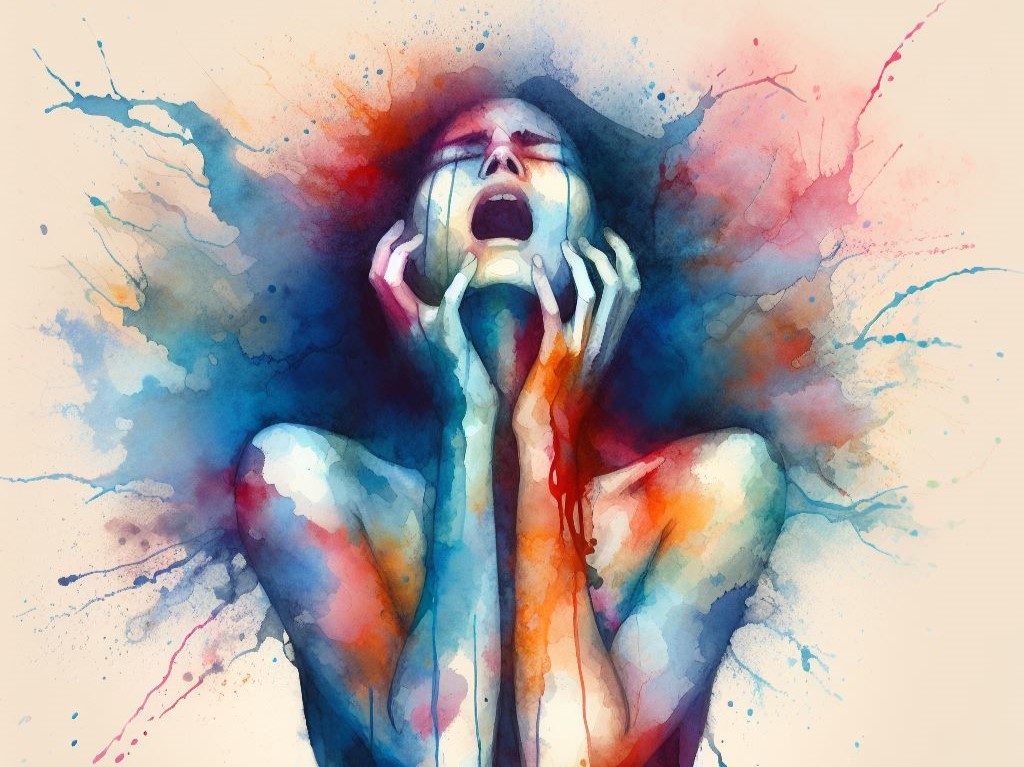When you are emotionally in a bad place, people tend to tell you ‘Everything’s going to be okay’. Mental health is often disregarded because most people don’t understand what it’s like to suffer at the hands of this demon.
People with panic disorders are not crazy, and these matters should be considered seriously. In this article, I will tell you about my own experiences with panic attacks, and how I learned to deal with them.
How I developed a panic attack disorder
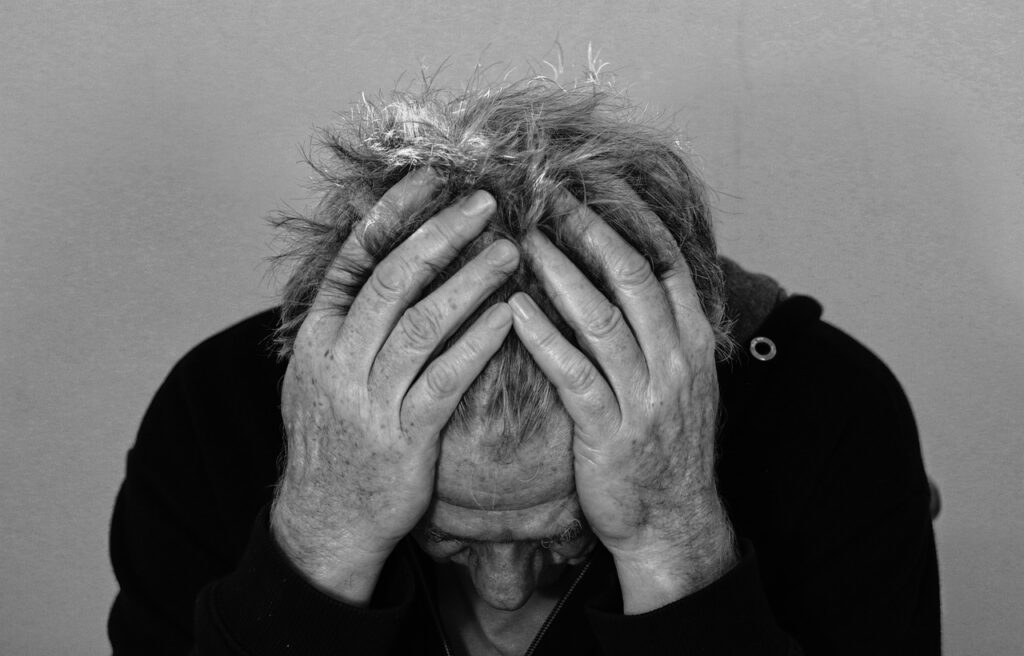
My anxiety attacks began with issues that were out of my control. As I’m writing this, next to me is my passport with an expired visa. My visa expired months ago, meaning I have been living illegally in Vietnam.
I’m stuck.
Two repatriation flights have been canceled, and I still have no way of returning to my home country due to the ever-evolving situation of the pandemic. So I’m waiting indefinitely to hear back from my embassy, hoping for some good news.
In December 2021, I quit my job in Hanoi and moved to the coast with my partner. We both had our business visas extended through an agent in February since we didn’t have sponsors, and quickly plugged into work again.
This is a fairly normal situation here in Vietnam. Over fifty percent of the expats have business visas, and we never had problems until recently. The rules changed without warning, and now many people are caught in a difficult situation, without any way of leaving the country, and no way to stay in the country.
One day, my partner and I were waiting for our bus back home, and the driver refused to let us on without giving us a reason why. By that time, I already felt that something strange was going on.
A few hours later, I got a message telling me that classes would be suspended until further notice due to another spike in cases. As an English teacher, everything was put on ice.
The next day, we were able to catch a bus back home. Stores were closed, the beach was closed, and the streets were empty.
This continued for days, and I started feeling sad. This uncomfortable situation was exacerbated by my salary being suspended due to the pandemic, including the previous month I had worked. I started to worry as I was running out of money, and my salary for the month never arrived.
I managed to stay calm until I heard back from my legal agent regarding my visa. He told me that the immigration stopped issuing visas to foreigners, but didn’t give an explanation why.
Never in my life, had I thought I’d be an illegal alien. I imagined myself being deported, being interrogated by police officers, being put in a cell for violating the law. This is when the panic attacks began.
What happens to your body during a panic attack?
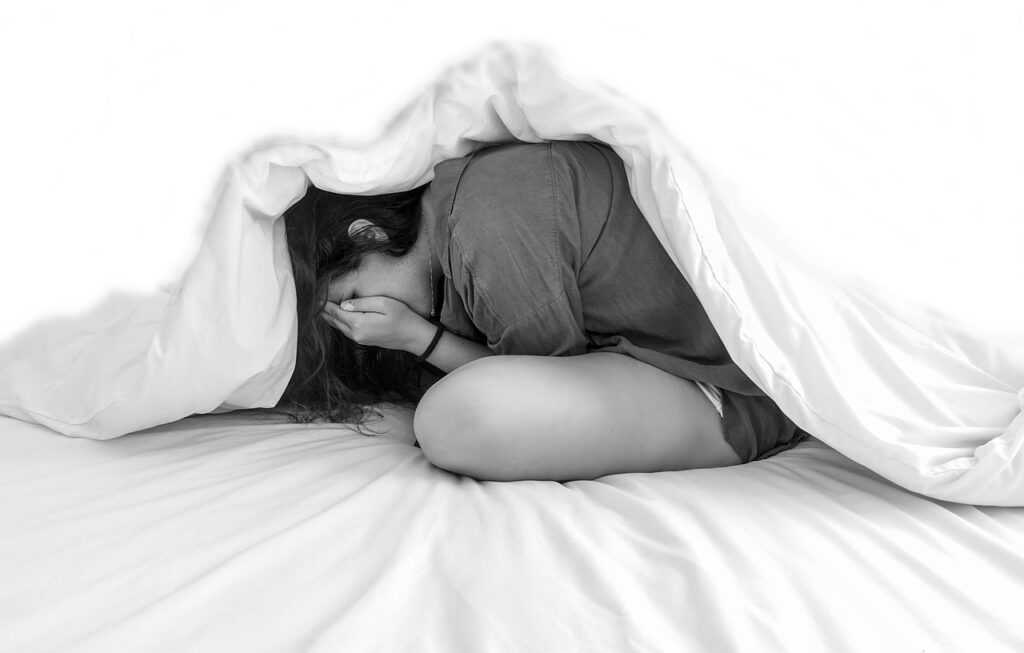
Panic attacks happen without warning. They feel like concentrated fear is being injected directly into the brain. It’s the tricks of the mind that can jumpstart someone’s body.
One minute I’m happy singing and dancing to my favorite tunes, the next thing I know, my heart is pounding like a drum, and my mind races.
During one instance I had a dry mouth due to a breathing exercise I was doing. I panicked because my mind was telling me that having a dry mouth would kill me. It’s irrational, I know, but the mind doesn’t discern.
There is usually a consistent sequence of events during a panic attack:
What happens as a panic attack is beginning?
As a panic attack begins, the first symptoms I experience consist of a tingling sensation tingles running from my toes to my scalp. This sensation is accompanied by hot flashes. Simultaneously, the activity of my stomach halts, causing discomfort. As panic attacks set in, I often feel nautious.
What happens during a panic attack?
During a panic attack, my heart rate increases, sending more blood to my body causing my muscles to go stiff. I imagine that is what the initial stages of a stroke may feel like. During this sensation, my mind begins to race, and the incessant thinking gets out of control.
Thoughts and feelings become overwhelming. My vision tends to lose focus and blur, giving objects the appearance of moving. At this point, I feel like I might faint. My panic attacks are generally quick, lasting for 3-5 minutes on average.
What happens after a panic attack?
After a panic attack, my body is exhausted. My muscles ache, especially in my back, shoulders, and neck. I usually feel mildly dizzy, and my vision remains blurry for about ten to fifteen minutes. The aftermath lasts longer than the panic attack, so I always take it real easy following a panic attack.
How to manage a panic attack

Here are some techniques that have helped me regain composure during a panic attack:
- Deep breathing. Deep breathing works like magic for me. Whenever I feel my heart throbbing, I start regulating my breaths by inhaling for five seconds, pausing for five seconds, and exhaling for five seconds. By breathing consciously, you will feel your heart slowly return to its normal pace.
- Relax your muscles. It is important to learn how to relax your muscles when you’re experiencing a panic attack. The more stiff your muscles become, the harder your panic attacks will be to manage. Lie down and allow yourself to feel heavy. Consciously breathe into your muscles to loosen them up.
- Listen to music. Music can help relax me when undergoing a planet attack, although certain types of music can exacerbate the issue. When I feel a panic attack coming on, I listen to soothing music without lyrics while focusing on my breathing.
- Open up. Some who are suffering from panic disorder are subconsciously drawn to what we call the safe zone. It’s important to feel safe. In my experiences, confessing to someone I trust has helped me. By confessing, I was given what I needed such as affection and love without judgment.
- Cry. At first, I wasn’t very expressive of my emotions until I was in a position where all I could do was cry. That made me realize that crying is good because it’s a release. When we are crying, we are letting our emotions out, and at the same time deep breathing which is beneficial when you’re experiencing a panic attack. Don’t hold back the tears, let them rip.
- Do moderate exercises. Sometimes, my fear triggers the fight-or-flight response. When this happens, my mind tells me to move, to flee, so what I do is some exercise to harness that urge. I used to live in an apartment with a pool, and I remember jumping in and swimming until my breathing was regulated. I’m thankful for that pool. Also, jogging and walking outside helped me along this journey.
Daily practices to help manage anxiety and panic attacks
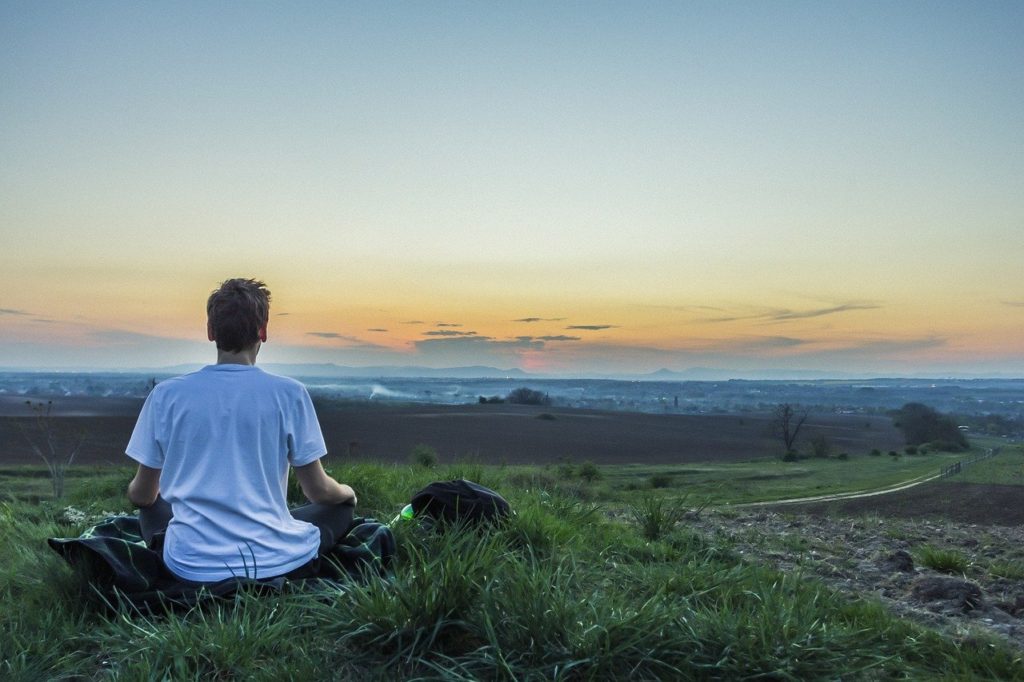
- Yoga. Yoga is one of the best practices that helps manage stress and anxiety. With yoga, you are inviting mental and physical relaxation. Whenever I do yoga, I feel focused on the present, and my mind is centered. There are lots of Yoga tutorials available on YouTube, but I highly recommend the ones that last for 30 minutes or more.
- Meditation. When you’re experiencing a panic attack, meditation can help you connect to the rawness of emotions, and find composure within them. I normally meditate after yoga, and child’s pose meditation tends to help me mitigate the effects of a panic attack.
- Connect with nature. I always say that nature is the best medicine. Nature makes me feel relaxed, and it’s a great remedy when you feel a panic attack beginning. If you do not have access to the beach or mountains, you can buy some plants. I used to live close to the beach and mountains, but I had lots of plants in my apartment. Watering them and just looking at them relieved my stress tremendously.
- Reading and writing. These two activities help me track the progress of my mental health. I have a journal where I write down my emotions and the triggers, the intensity of the attacks, and activities that helped me. I also recorded the duration of my sleep daily. It was my way of improving my anxiety awareness. It is important to have a journal so you can read back what worked for you, and what you can continue doing.
- Avoid substances. Our bad habits only work as a temporary fix. It’s an enjoy-now-suffer-later type of system. For others, alcohol makes them relax, but in my own experience, it triggers panic attacks. After a particularly bad panic attack, I decided to stay away from alcohol and tobacco as I didn’t want to experience an episode like that ever again.
- Practice gratitude. Panic attacks cause us to overthink about the future, so being present is a good way to stop our minds from doing it. We have no control over the future, but we can navigate our present.
How to help others through panic attacks
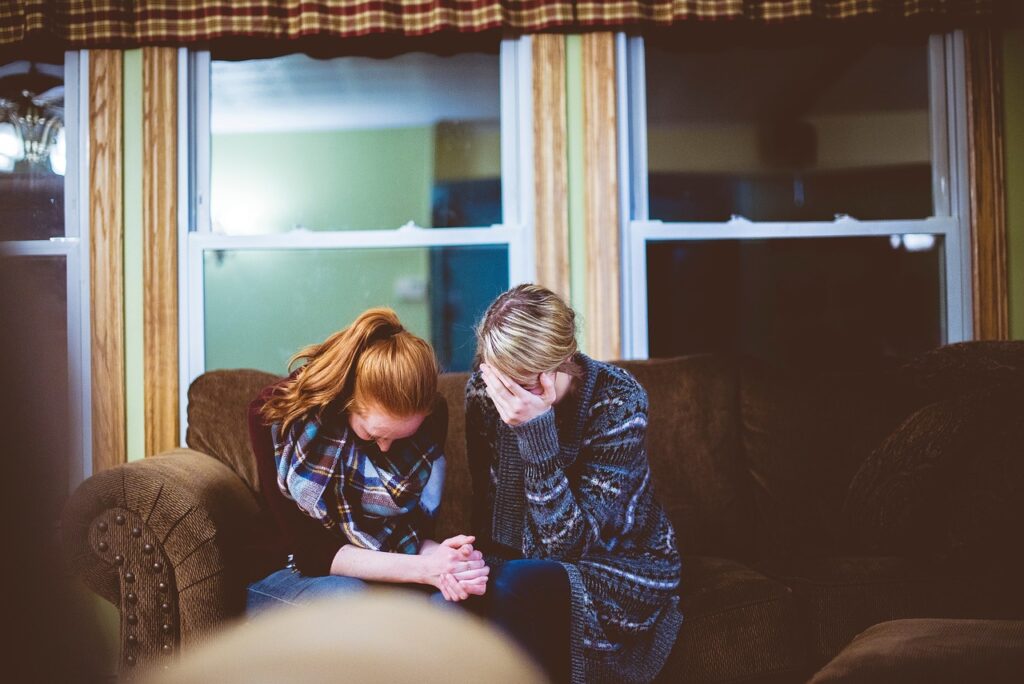
Managing a panic attack is one part of the journey, but other people are a major aid here too.
If someone you know is going through a panic attack, you can help them find composure by following these steps:
- Don’t judge. If someone tells you they are suffering from either of these mental disturbances, that means THEY TRUST YOU. Despite feeling ashamed about their condition, they picked up as much courage as they could muster just to let you know about their battles against their demons. They expect you to not judge, so be decent enough to not judge them.
- Do not panic. If you happen to be with someone who is having a panic attack, it is very important to stay calm and not panic, as well. One of the common reasons why someone who is having a panic attack is not vocal about it is because he/she is scared that the other person might also panic. Just relax and don’t add another layer of fear to it, as things could go wrong, and exacerbate the situation. Be their rock, and help ground them.
- Be the safe zone. If your loved one is telling you that they are panicking, the best thing you can do is to make them feel safe. Hugging and cuddling is my personal favorite. In my own experience, being hugged and cuddled gives me the feeling of home. The feeling of safety. The power of interpersonal touch does not only benefit the person who is trying to escape the darkness of fear, but it also helps lower the stress of the hugger/cuddler. It’s like hitting two birds with one stone.
- Be careful with your choice of words. Words play a very vital role in this situation. Typically, if someone is panicking, our automatic responses are ‘Everything’s going to be okay’, ‘Just relax’, and ‘Calm down’. Trust me, these phrases don’t help. The brain of the person suffering from a panic attack is too clouded as he/she was already programmed to feel the opposite. They need words of assurance like ‘I am here for you’, or ‘I am with you’, which also affirms safety and security. If you don’t know what to say, just try to execute rules number one, two, and three.
- Do not assume. Ask questions. To tell you honestly, sometimes, it’s hard for someone who suffers from anxiety and panic disorder to open up about their triggers and requests. They would never want to talk about it because they fear being judged. What you can do is ask the person if he/she wants to talk about it calmly. Ask if they need anything. Initiate the conversation and encourage the person without giving him/her the feeling of being forced. Just talk normally with a calm tone of voice. As simple as that.

